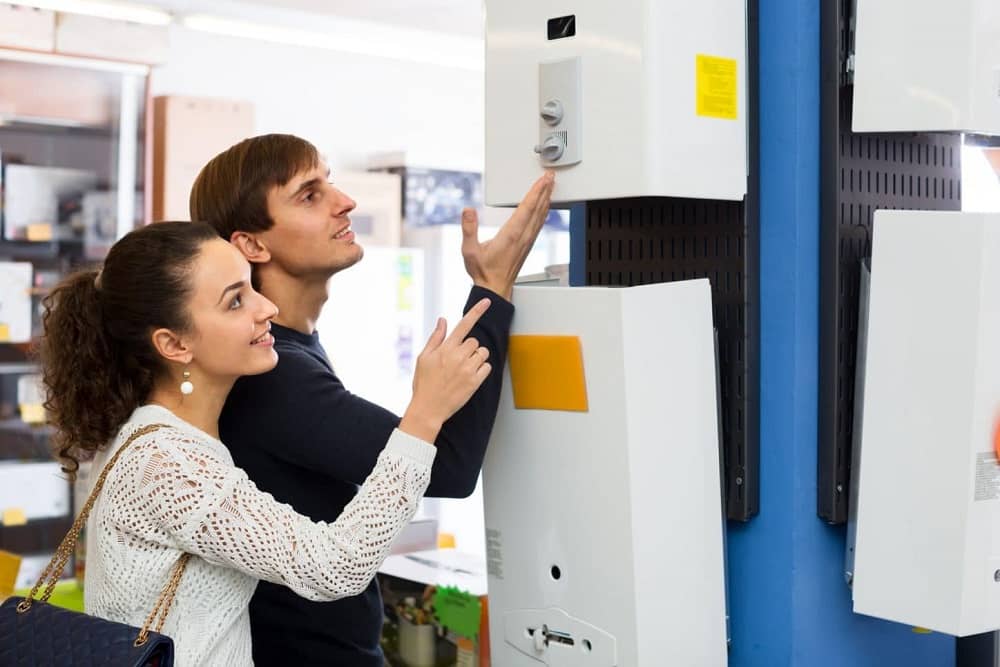It’s worth spending a bit more time researching your heating system (boiler, controls) to make sure it works well.
You’ll be surprised at how many gadgets and gizmos are included in a basic car. However, most people don’t know that domestic heating technology is still evolving in a similar way in the past decade. Good news is that innovations in heating control have surpassed improvements in boilers. If you make the right choice, your system will not only be more cost-effective, but also easier to use.
In 2005, it was mandatory that all gas-fired boilers in homes be converted to condensing boilers. Oil boilers have been available since 2007. They are more efficient and can be used in all types of homes. Choosing a new boiler can be very tedious since you need to consider a lot of things. But here’s a guide on how you can choose with ease.
How to choose a replacement boiler
First, you need to choose which boiler best suits your needs: a combination (short for system) or a combi. Combi boilers are Britain’s most popular type of boiler. They can heat your radiators or provide hot water on demand. They do not require a water storage tank and take up less space making them great for smaller homes.
Combi Boilers
What they do:
Combis are sealed systems that provide hot water to both the taps, central heating system, and central heating system. The water is heated directly from the mains, so there is no need to heat the water in a storage cylinder or roof space.
Advantages: Combis are faster, simpler, and more affordable than system boilers. They also save space due to not having to use a cylinder/cistern. You can have a stronger (but not ‘powerful’) shower by having water delivered to mains pressure.
Drawbacks: This is a priority system that only addresses one heating requirement at a given time. Although it’s fine for families with only one bathroom, large families will have poor flow rates if multiple outlets are being used simultaneously. Performance also depends on the pipe diameter entering the property. A combi is not recommended if it is less than 22mm.
Boilers for System Boilers
What they do:
System boilers can be fitted to heating systems that are sealed. However, they work differently from combis in that they store hot water in a cylinder, which allows them to feed multiple outlets at the same time at mains pressure. The expansion vessel and a cistern are not required in the loft.
Advantages These are ideal for larger homes with high demands and most of their major components already built in (i.e. Installation is faster, easier and cheaper than a pump and expansion vessel. The flow rates of hot water are instantaneous and the water pressure is high.
Drawbacks: If overused, will run out of hot water. Installers claim that they are more complicated and more prone to problems than regular boilers.
Regular Boilers
OPEN OR SEALED?
A sealed circuit is filled to approximately 1 bar pressure, then sealed. An expansion vessel is used to handle excess water. Systems that are sealed work more efficiently.
What they do:
Many homeowners now have regular boilers as replacements for open-vented heating systems (i.e. The system is open-ventilated because it uses a feed and expansion tank in the roof space. They work on the principle of stored water and need a separate hot water tank.
Benefits: Hot water can be delivered instantly and at a high flow rate. This setup is ideal for a power shower. It requires both a separate electric pump and cold water feed from a cistern.
Drawbacks: They are more difficult to install and require more pipework and components. If the cistern is too low, they can experience low pressure. Additional shower boosters may be needed. The hot water may run out.
How to choose the right size boiler
Although it was common to oversize boilers by 30% in the past, this is now considered wasteful. It is important to choose the right size boiler for your home. The heat loss calculation is used to determine the size of the house, its materials, and their insulation. It also takes into account your hot water needs, such as. How many bathrooms do you have? You can have this done by a heating engineer, or you can use an online calculator for free.
You can then size your heating emitters once you have determined the heating needs of each room in kilowatts. You can then determine if the boiler you purchase will heat the entire system efficiently by measuring the heating requirements of each room.
The heat from the combustion products was simply wasted before the invention of the condensing stove.
Condensing boilers are designed to extract as much heat energy from the fuel as possible and turn it into heat for heating the house. They use less fuel to heat the house. Condensing boilers are now required by Building Regulations to be installed in new domestic central heating boilers.

